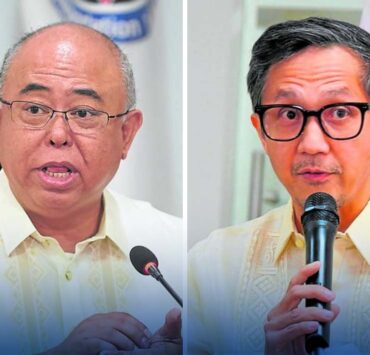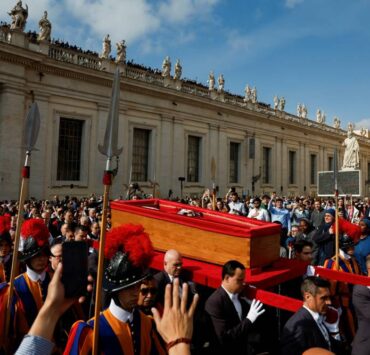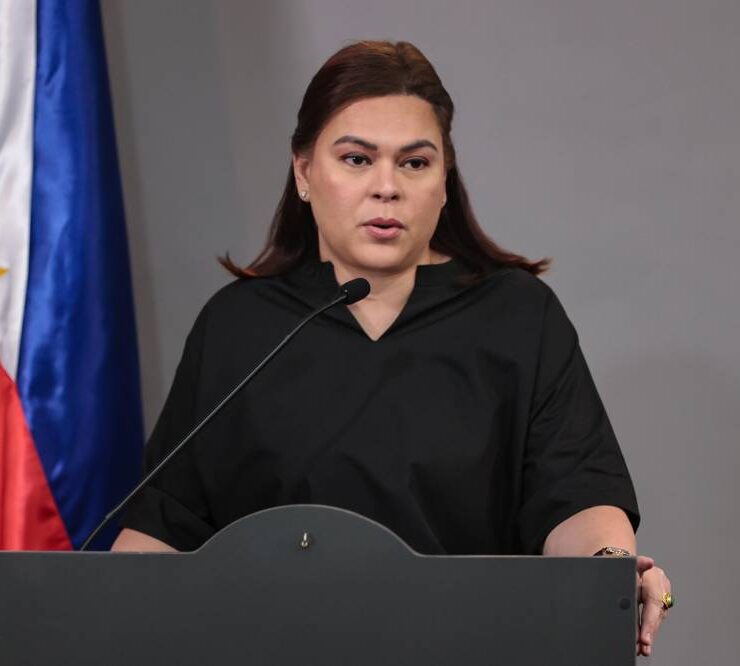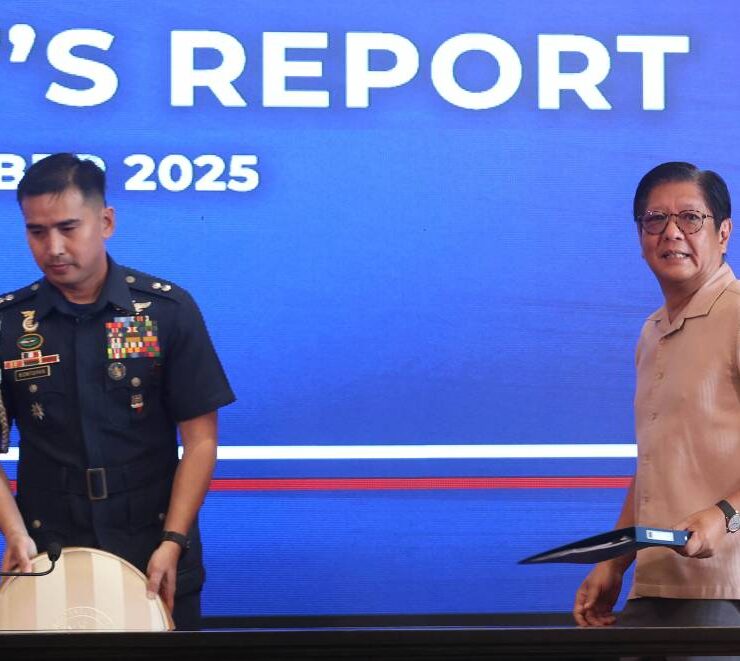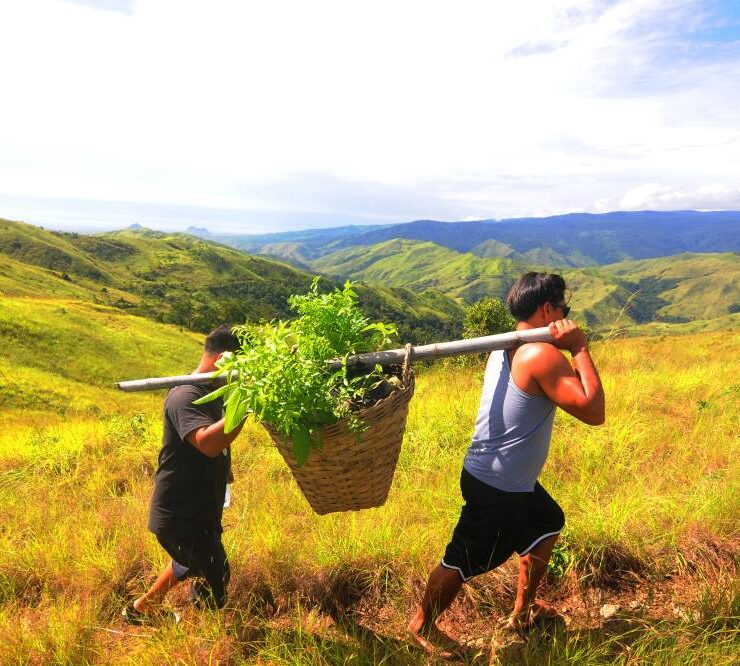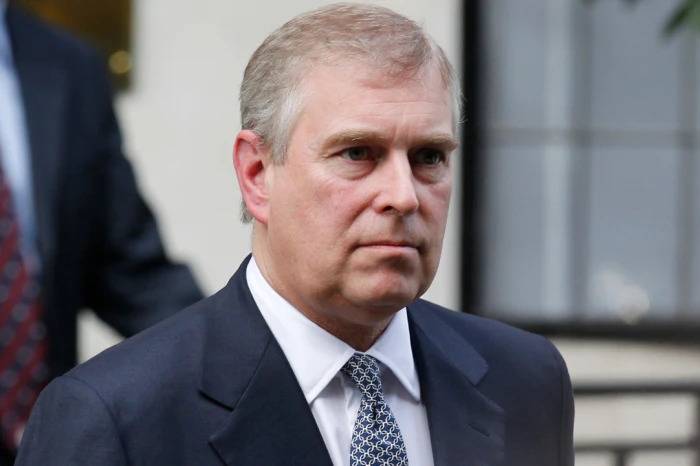Cardinal: Prayer, not politics, marks selection of next pope
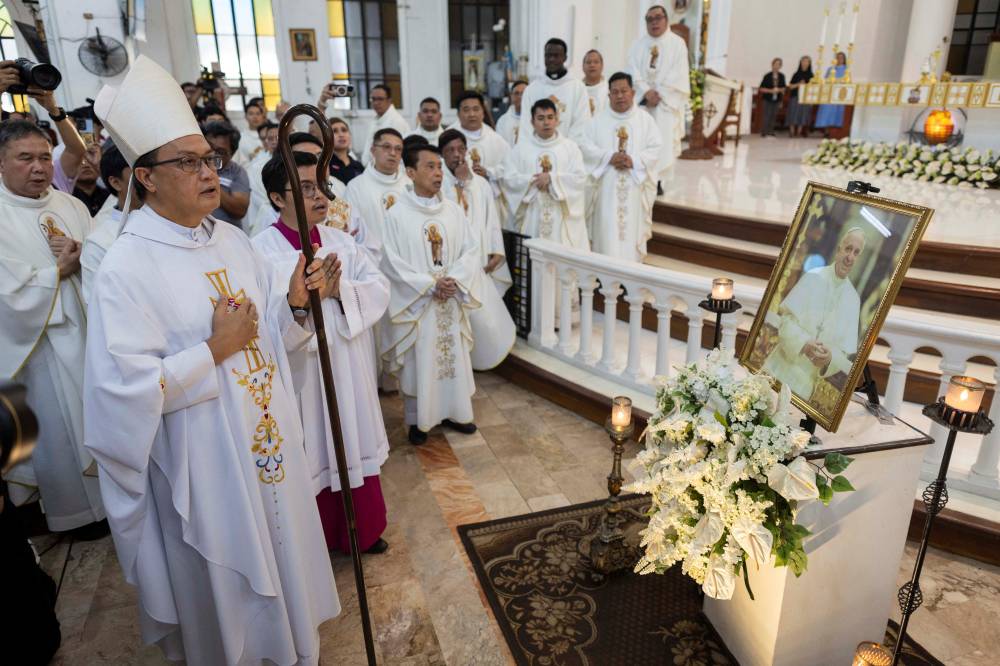
Just to be clear, the conclave is not like Philippine elections.
For one, it will be marked not by fanfare but by prayers, said Cardinal Pablo Virgilio David on Wednesday, describing the much-anticipated process of selecting the 267th pontiff and successor to the late Pope Francis.
Any participating cardinal, including those not considered “papabile” or front-runner, can be emerge as the next pope, said David, who will participate in the conclave for the first time.
He thus played down the social media posts that had gone viral since Francis’ death on Monday about the list of his possible successors.
“The elections in the Catholic Church are far from the elections we know in the Philippines, where there is noisy fanfare, many candidates going around to campaign, tarpaulins are being posted everywhere and financial aid is being handed out. There’s nothing like that in the papal election,” David said in an interview on GMA’s “Unang Balita.”
“[The conclave] is a [spiritual] retreat. We will pray that the one that will succeed Pope Francis is not the one that we choose, but whom God has chosen. We can only do that in the context of prayer and discernment,” he added,
David, bishop of Kalookan diocese and president of the Catholic Bishops Conference of the Philippines, said the conclave has a “big moral and spiritual obligation … not in the spirit of politics, but in the spirit of prayer.”
He is set to depart for Rome today to attend the funeral of Pope Francis on Saturday.
How the conclave works
The conclave is the closed-door meeting of members of cardinals to choose the new pope inside the Sistine Chapel of the St. Peter’s Basilica. Its name, which means “with a key,” was used in the 13th century to describe the process of literally locking up the cardinals until the election is completed.
No date has been set yet, but the conclave should begin no less than 15 and no more than 20 days after the death of the Pope.
Of the more than 250 cardinals from different countries around the world, 135 are considered cardinal electors, or those who can vote for the next pope.
Most of the participating cardinals sleep in a Vatican hotel behind St. Peter’s Basilica. They will be banned from communicating with the outside world—no phones, television or internet.
One conclave in the 13th century lasted two years, nine months and two days. The average length of the past 10 conclaves was three days. The last conclave, which elected Francis in 2013, lasted just two days and involved five ballots.
Except for the first day, when only one ballot is held, the cardinals hold two daily balloting sessions until one candidate has a majority of two-thirds plus one. All participants are sworn to secrecy about the voting.
Cardinals cast their votes on papers printed with the Latin words “Eligo in Summum Pontificem” (“I choose as Supreme Pontiff”). The ballots are gathered together and burned at the end of the morning and afternoon sessions, with smoke pouring from a makeshift chimney above the Sistine Chapel.
Black smoke indicates inconclusive votes, while white smoke tells the outside world that a pope has been chosen. The great bell of St. Peter’s Basilica will ring out as an additional sign that a new pope has been elected.
The smoke signals are expected at around noon and 7 p.m. each voting day. However, smoke could emerge earlier if the new pontiff is elected in the first ballot of one of the sessions.
After a pope is chosen, a senior cardinal appears on the balcony of St. Peter’s Basilica and announces in Latin: “Annuntio vobis gaudium magnum. Habemus Papam” (“I announce to you great joy. We have a pope”). He identifies the new pope by his given name, with his first name translated into its Latin version, and then announces the papal name the new leader of the Church has chosen.
The new pope then steps forward to deliver his first public address and his first “Urbi et Orbi” (“To the City and the World”).
Filipino cardinals
There are five Filipino cardinals but Cardinals Orlando Quevedo (86) and Gaudencio Rosales (92) are ineligible to participate in the conclave because they are over 80 years old. The three who can vote are Manila Archbishop Jose Advincula (73), David (65), and Cardinal Luis Antonio Tagle (67).
Tagle has been named as one of the likely successors of Pope Francis and often referred to as the “Asian Francis” because of his similar commitment to social justice. In 2019, he was appointed by the late pope to head the Church’s missionary arm, formally known as the Dicastery for Evangelization.
“Anyone among the eligible cardinals can be voted for. Cardinal Tagle is often being talked about because he is very prominent as he is always visible. But in general, the Holy Spirit can choose someone who’s unexpected. So we really do not know yet what will happen,” David said.
Tagle was considered a contender as far back as the 2013 conclave that elected Pope Francis.
At that time, when asked how he viewed suggestions he could be the next pope, Tagle answered: “I treat it like a joke. It’s funny!”—WITH A REPORT FROM REUTERS














